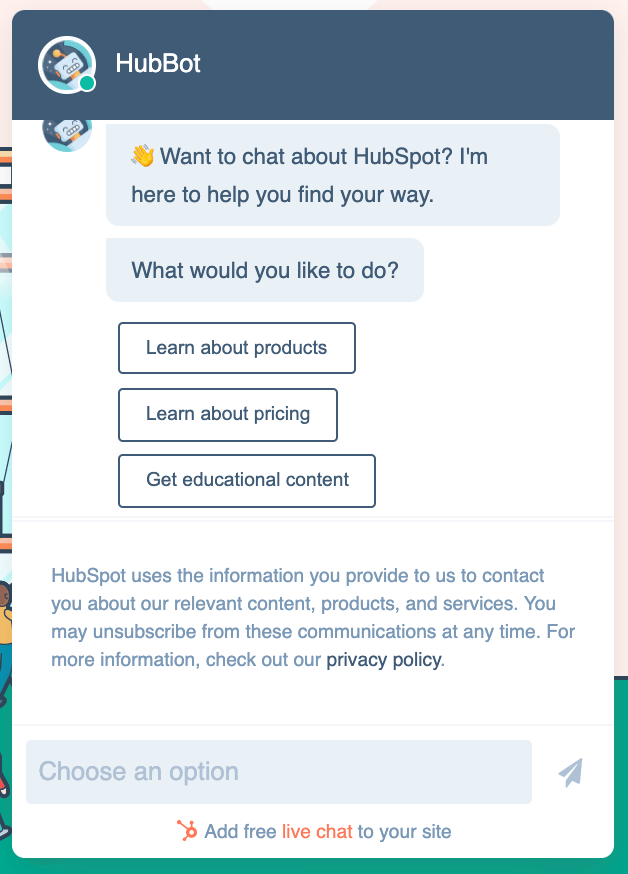Leveraging AI in marketing is now a common practice – it enables granular audience targeting and segmentation and makes it easier to put forward your offerings to the right audience.
“70% of high-performing marketing teams have a fully functioning AI strategy, compared to 35% of their under-performing counterparts.”
Tag along as we discuss five examples of AI in marketing and the unique use-cases of artificial intelligence marketing.
AI in Marketing: current scenario and future scope
As more organizations adopt AI, we must look beyond the core AI marketing use cases (like targeting tools offered by Google and Facebook).
Think about it — your results won’t make you stand out if you’re using AI marketing just like everyone else.
Besides, most AI marketing tools work on a “pay-to-win” model. So, companies who bid higher will always get better results.
The only solution is to find unique (or alternative) use-cases for AI in marketing.
5 unique examples of AI in marketing
Let us look at a few unique examples and strategies of AI-based marketing.
1. AI-backed personalization
- Epsilon reveals that 80% of customers are more likely to purchase from a brand that provides them with a personalized experience.
- Accenture study states that 91% of people are more likely to purchase from a brand that knows them.
AI-based personalization enables brands to engage better, improve loyalty, increase sales, and understand the audience better through real-time data.
Example: Dell’s personalized newsletters
A company as big as Dell has multiple customers and segments. Dell leveraged AI marketing to send custom newsletters to various customer segments.
They took their original email promotions and altered the content depending on each segment’s behavior. As a result, they received a 45%(+) increase in the CTR.
2. Conversational chatbots
Not sure about the world, but AI-powered chatbots have taken over the marketing landscape.
Companies leverage chatbots to answer basic queries throughout the day. Chatbots also hold the fort during off hours when support agents are unavailable.
Example: HubBot by Hubspot
Look how HubSpot leverages its chatbot ‘HubBot’ on its homepage to help users/visitors navigate to specific content.


3. AI in Digital Marketing: enabling SEO research
Despite the rise of social media and influencer-driven marketing, SEO is still prevalent and is the biggest driver of marketing success.
Did you know?
Customers make 85% of buying decisions through a Google search.
AI marketing tools are becoming more prevalent as algorithms strengthen.
AI algorithms can help you develop SEO-friendly marketing content. Here’s a list of SEO tasks where AI can help:
- Keyword research
- Analyze competitor’s SEO strategies
- Find loopholes in your strategies
- Better understand the keyword intent
- Content creation and analysis
- Automation of SEO workflows
- Voice search content discovery
Example: BrightEdge, an SEO solution vendor
They use AI-powdered keyword research tools to identify the most relevant topics and keywords. It takes a seed list of relevant keywords and gives you 100X more keywords to target. You can also analyze and target keywords based on various demographics and locations.
4. Predictive marketing analytics
It is difficult to derive insights from large-scale databases — the information can be overwhelming for marketers. AI marketing enables marketers to leverage ML algorithms, models, and datasets to predict future trends and customer behavior.
It also helps you understand the types of products a particular customer would want and serves them with personalized recommendations.
Example: Marketo
Adobe’s marketing automation platform, Marketo, helps marketers save time and reduce errors. It crawls through the user’s website and identifies assets that can be used in marketing campaigns, such as videos, case studies, etc.
It helps predict the most relevant content to show to individual website visitors and provides AI-powered suggestions which optimize existing content and identifies the best performing content.
5. “Try-before-you-buy” Model
Many brands leverage AR tools that superimpose computer-generated graphics in the real world. AI creates realistic images in real-time as the user looks through their phone camera.
Example: Cisco
Cisco uses AR in its latest online interactive product catalogs. It allows potential clients to get a fresh take on the firm’s technology offerings. It breathes a new life into traditional B2B content by using immersive experiences and elevates the firm’s marketing and CX efforts.
Businesses that don’t leverage AI will be replaced by those who do
Companies that strike the perfect balance between empathy and data-driven results will prevail. A survey by Gartner reveals that multiple marketing stakeholders employ AI marketing solutions in their strategies.
Besides, brands that use AI marketing tools to incorporate personalization will benefit unequivocally. Add to that AI content creation and predictive analytics enable up-selling and cross-selling results.
When are you planning to begin?



